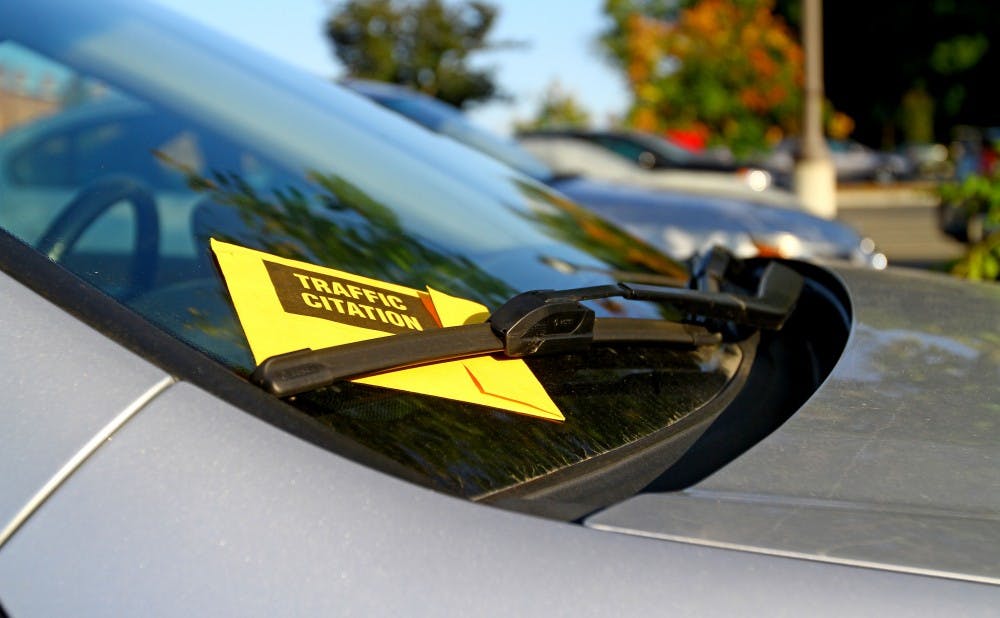Duke administration has tightened the availability of parking spots for students in order to accommodate crowds at sporting events and concerts, a move that has left students feeling marginalized. Parking changes made over the summer include the movement of freshman parking from East Campus to Smith Warehouse, the creation of a commuter parking zone and the further distancing of upperclassmen from their parked cars in the Blue Zone.
Many of the students on campus have been affected by the recent changes. Sophomore James Sawyer, for one, said the new parking regulations marginalize students.
“They say that, due to the construction on campus, space needed to be made for commuters in the Blue Zone,” Sawyer said. "This effectively pushes [the upperclassmen] further into the back corner of the Blue Zone and further away from our dorms."
At Duke, the commuters are those students who do not live on campus, and must therefore commute to and from campus each day.
Sam Veraldi, director of parking and transportation, said that sports field construction on Bassett Drive and renovations to Gross Hall led to a reduction in parking space used by faculty and graduate students, prompting Duke to find space for them elsewhere, such as the Blue Zone.
“The idea was to put commuter graduate students closer to the stadiums so that they would have better access on a day-to-day basis, since they were coming more frequently to and from campus than resident students,” Veraldi said.
On top of the limited Blue Zone space for undergraduates, students who park there are required to remove their cars to make room for athletic event parking.
For Sawyer, this means that students pay for a Duke parking permit, on top of tuition and housing fees, and then are inconveniently moved around for the sake of Duke’s non-student football fans.
“The most annoying thing about the Blue Zone by far is that the athletics department gets preference, so if there is a football game, they’ll kick out all the students,” Sawyer said. "If you don’t move your car on game day, you’ll get towed for a fee of about $150.”
On East Campus, student parking has also been moved to make way for event crowds—in this case, people attending performances at the newly renovated Baldwin Auditorium.
“In order to accommodate Baldwin Auditorium so that it has transient parking and successful attendance for the events held there, we need to have a place for them to have accessible parking for those who are attending these events,” Veraldi said. “In doing so, the option that became most available to us was to move the freshmen, who use residential parking, in that they are not commuting to and from campus frequently."
He added that freshmen were moved to the next most convenient place to park near East Campus—the Smith Warehouse.
Freshman Krista Kowalczyk noted, however, that the East Campus parking plan falls short of being convenient. Although Veraldi mentioned that security has been increased for the freshmen parking at Smith, Kowalczyk says that she feels unsafe walking back to the dorm at night from the parking lot.
“I usually have to find someone to walk with me and it's a huge hassle,” she said.
These recent Duke parking changes seem to be motivated by revenue rather than student welfare, Sawyer said. The revenue is generated not only from athletic ticket sales on West, but also from concert ticket sales at Baldwin on East.
"Revenue for the games is being prioritized over the students of the University,” Sawyer said.
Veraldi stressed, though, that Duke is not making these adjustments out of self-interest, but because the students also want Duke's teams and spirit to grow.
He also pointed out that the parking changes are a reflection of growing interest in the Duke football program. As more fans want to attend games, the University has to change to accommodate that. For instance, Veraldi added, when Duke hosted Alabama a few years ago, the stadium held 42,000 spectators rather than the usual 25,000.
“We would all—the fans, coaches and players—be extremely excited if our athletic staff succeeded in increasing attendance at our games," he said. "This is not a revenue tradeoff. We’re working in an old campus, toward a new model in order to improve how Duke hosts and runs football and all athletic events.”
Get The Chronicle straight to your inbox
Signup for our weekly newsletter. Cancel at any time.

